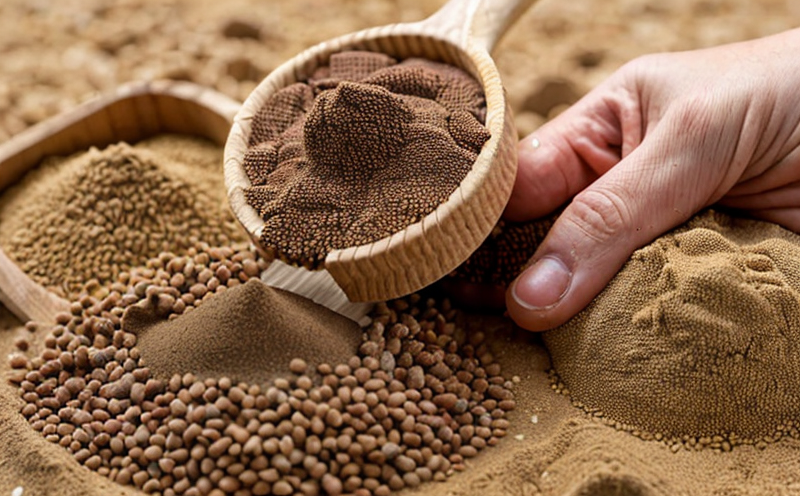Energy Content (Metabolizable Energy) Testing in Feed
The energy content of animal feed is a critical parameter that significantly impacts animal health, growth rates, and overall productivity. Metabolizable Energy (ME), also known as Net Energy, represents the amount of digestible energy available for biological processes after accounting for losses during digestion. Accurate measurement ensures compliance with nutritional standards and enhances product quality.
For livestock and poultry, ME testing is essential to determine feed efficiency. This service involves precise analysis using advanced calorimetry techniques that quantify the heat released upon combustion of a feed sample under controlled conditions. The process accounts for both gross energy (GE) and digestible energy (DE), providing insights into the caloric value available for animal utilization.
At Eurolab, we employ state-of-the-art calorimeters designed to meet international standards such as ISO 6865:2014. Our testing protocol ensures accurate determination of ME content by accounting for moisture content and other factors that affect energy availability. This comprehensive approach guarantees reliable data aligned with industry best practices.
Our services include:
- Comprehensive sample preparation to ensure representative feed samples
- Advanced calorimetry analysis per ISO standards
- Expert interpretation of results and recommendations for formulation adjustments
- Detailed reports tailored to the needs of quality managers, compliance officers, R&D engineers, and procurement teams
Scope and Methodology
The scope of our energy content testing encompasses various types of animal feed formulations including pelleted feeds, mash diets, premixes, and custom blends. Our methodologies adhere strictly to international standards like ISO 6865:2014 for gross energy determination and ISO 7349-1:2012 for metabolizable energy assessment.
The testing process involves several steps:
- Sample collection from clients or procurement teams
- Preparation of homogeneous feed samples by grinding and sieving
- Determination of moisture content using oven-drying methods
- Combustion analysis in a bomb calorimeter to measure total energy release
- Calculation of digestible energy based on nitrogen content, crude fiber, ash, and other components
The results provide detailed breakdowns of the caloric value available for animal utilization. This information is invaluable for optimizing feed formulations to meet specific nutritional requirements while minimizing waste and environmental impact.
Eurolab Advantages
At Eurolab, we pride ourselves on delivering unparalleled accuracy and reliability in our energy content testing services. Our laboratory is equipped with cutting-edge calorimetry equipment that ensures precise measurements under controlled conditions.
- ISO/IEC 17025 Compliance: Ensures adherence to international quality standards, providing credibility and trustworthiness for your business partners.
- Expert Technical Team: Our team of experienced scientists and engineers ensures thorough analysis and interpretation of results.
- Comprehensive Reporting: Tailored reports with actionable insights to help you make informed decisions about feed formulations.
- Prompt Turnaround Time: Efficient processing times to meet your business needs without compromising on accuracy.
Competitive Advantage and Market Impact
Accurate energy content testing is crucial for maintaining a competitive edge in the agricultural sector. By ensuring optimal feed formulations, you can enhance animal performance and reduce costs associated with under-nutrition or over-feeding.
- Increased Efficiency: Optimized feed formulations lead to higher conversion rates and better growth outcomes.
- Sustainable Practices: Efficient use of resources contributes to sustainable farming practices, aligning with global environmental initiatives.
- Market Differentiation: Reliable test results provide a competitive advantage in the marketplace by demonstrating commitment to product quality and safety.





